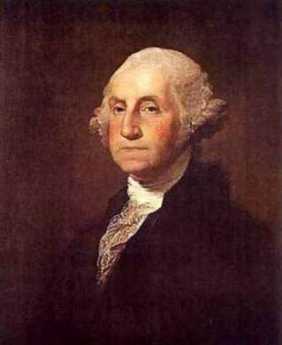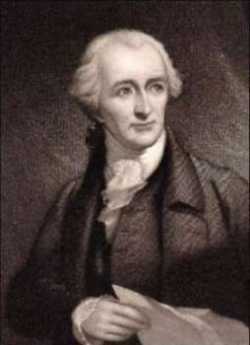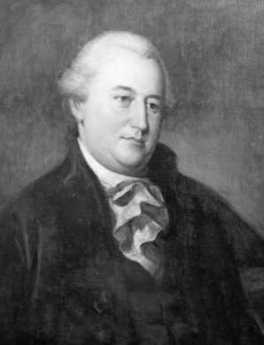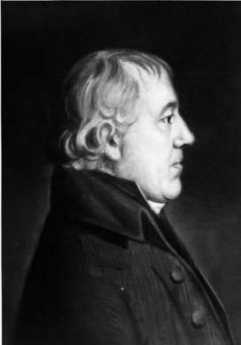4 Volumes
Constitutional Era
American history between the Revolution and the approach of the Civil War, was dominated by the Constitutional Convention in Philadelphia in 1787. Background rumbling was from the French Revolution. The War of 1812 was merely an embarrassment.
Philadephia: America's Capital, 1774-1800
The Continental Congress met in Philadelphia from 1774 to 1788. Next, the new republic had its capital here from 1790 to 1800. Thoroughly Quaker Philadelphia was in the center of the founding twenty-five years when, and where, the enduring political institutions of America emerged.
Four Constitutions
Multi-national unions of republics are uncommon, usually brief and seldom voluntary. America has had three of them, but we only got it right the second time. Uncertain why we succeeded when many others failed, we remain skeptical of changing the rules. The Europeans, on the other hand, are uncertain whether they want to follow the Confederate States of America toward extinction, or the United States of America toward world domination. When deeply considered, it is a hard choice.
Pre-Revolutionary Ben Franklin
Poor Richard was able to retire at the age of 42, and spent the rest of his life as a rich man, dying at the age of 82 with an eye-popping estate.
...Authorship of the Constitution
There were seventy invited delegates to the Constitutional Convention. Fifty-five attended the sessions, and thirty-nine signed it. We believe the main contributions were made by seven or eight men. But you can never tell, for certain.
The Eighteenth century creation of the American republic changed the world in many ways. Not the least of the changes was to isolate the political life of a national politician from his personal life. Paradoxically, a system of governance devised from the idea of personal representation of a constituency, tends to pack the representative off to a distant city, behind closed doors with other representatives, aloof and somewhat distant to his district, if not exactly living a life of secrecy. The state capitals like the national one are located in one-industry towns, and the one industry is government. It takes time to get used to the local newspapers there, and the traffic patterns reflecting schedules and vacations of the single industry with satellite industries. Washington when Congress is out of session is a city asleep; it's the same in state capital cities. People assigned to Washington for other reasons almost always express hatred of the place. But those who spend their working lives in the thick of government often will retire there. They never go back to Pocatello, as the saying goes.
There are many reasons for this isolation, but one of the chief reasons has to do with escaping from the constant scrutiny of constituents, some of whom are potentially seeking to replace the representative, and all of whom could potentially give damaging information to an opponent. The real business of representation is buried in a mountain of procedural votes, many of them capable of depicting the representative in a position he really does not hold. Many votes near and dear to constituency are hopeless cases, bound to fail. If one of these hopeless votes is traded for something more useful, it is not necessarily a true betrayal, but an opponent will certainly portray it as that. Much of this is routine and boring; the representative casts the vote in question according to his staff's recommendation. Better the matter is not discussed a great deal in the home newspapers. What should matter to the constituents is whether their representative really, truly loves them and the natural concerns of his area. Anyway, his real service to the nation is in the important committee to which he has been assigned, but which has nothing to do with the immediate concerns of the home district.
In the Eighteenth century this was not precisely the same except for the important local gentry, who have now been replaced by heavy campaign contributors, with economic interest replacing social interest at one time only slightly above the gossip level. Congressmen no longer write legislation, they oversee the writing of it, better for them to spend their time recruiting good staff. Because of Rogen Sherman, the original language of the Constitution is preserved; nowadays, the language is best left to the fact-checkers and the bill-writers. Because of this and related issues, we have considerable interest in the real motives and the real meaning of the Constitutional authors, as we do not have, with current representatives. The Eighteenth century was a time of great letter-writers. The correspondence which has been (selectively) saved gives us insight into present emphasis given by contemporary lawyers, into the original meanings. So, too, it can be imagined the subsequent careers and pronouncements of the founding fathers can tell us about the men who were speaking for history. Unfortunately, it often happens that a man who spent thirty subsequent years afterwards drinking and philandering, may well have been as sober as a judge during that summer in Philadelphia. And a great many men who never went to college, indeed often did not go to school at all, can rise to towering heights of leadership and astonishing feats of oratory. Small wonder the Constitution is neglected by our great Universities; their products often come off looking badly by comparison.
Personalities Who Wrote the Constitution
The windows of Independence Hall were nailed shut and the delegates to the Convention sworn to secrecy. James Madison kept the official minutes and only released them years later. We may never be certain who was responsible for every feature, particularly the parts devised at home or in neighboring taprooms. That's the way they wanted it to be, however.
We easily notice the most influential men in each state were selectively chosen to attend, but it is hard to say whether that was done to increase the chances of state ratification, or whether it was intended to "stack" the votes in favor of rich and powerful. Perhaps some of both motives played a part, but primarily George Washington had state ratification in mind. As matters turned out, class frictions were more pronounced during and after the ratification than they were when the delegates were chosen. The Constitution encouraged the rise of the common man far more quickly than was anticipated. Almost every feature of the Constitution was considered for its effect on state ratification, whereas redistributionist ideas were largely unmentioned in the surviving records.
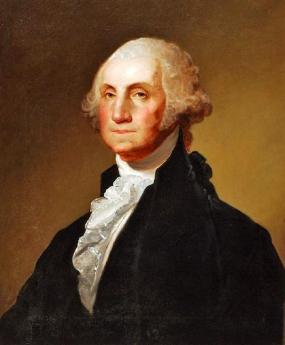
|
| George Washington |
Although many patriots had similar feelings, George Washington stands above all others as the driving force behind calling the Convention. The experiences of seeing Congress reluctant to pay starving troops who had saved the nation, and the resulting mutinies, were almost too much for him to bear, and would have driven many other commanders to far more extreme actions in his place. James Madison, a generation younger than Washington, felt almost as strongly but could never have brought the Convention around to proposing a whole new structure of government. Washington needed a younger man to be his agent and picked this one out as the jockey for his racehorse. Washington wanted to preside and to glower at anyone who seemed to be saying the wrong things. Perhaps at some critical moment, his active intervention might save the day; he wanted to preserve that opportunity. Furthermore, Washington had not gone to college and felt he needed a scholar to suggest what the Greeks and Romans had done in similar circumstances. Particularly the Romans, whom Washington greatly admired.
Madison was short and socially awkward, still unmarried at age 36, much in awe of the towering General with his commanding demeanor. In spite of their obvious differences, they were both rich Virginia slave-holding planters; each regarded the other as the right sort. Madison was a Princeton graduate, in the days when that exposed him to Quaker beliefs and to teachers who had been prominent in the Scottish enlightenment. At that time, Virginia was by far the largest state, West Virginia and Kentucky had not yet been split off, and Virginia still held viable claims to the five states which were to become the Northwest Territory. Virginia firmly believed it had a right to run things in America.
.jpg)
|
| Alexander Hamilton |
Alexander Hamilton had been Washington's chief aide during the Revolution; their only conflict had been his demand to be released from headquarters duty to expose himself to the enemy in a flamboyant manner on the parapets of Yorktown. Hamilton the sharp-nosed little elf was a ladies man, to put it mildly. Even Martha Washington giggled about his behavior at parties. The New York delegation was split with divisions, and often Hamilton was the only New York delegate present at the Convention. It was usually quite enough. He organized the New York Federalist party and the Bank of New York seems to run around and be everywhere at once. In some ways, he was to Robert Morris what Madison was to Washington. That's where he got his financial ideas, but without need for encouragement, he ran around and got a million things done. There are portraits of him, but his real likeness is best captured in action by the elfin statue of him in Philadelphia's Constitution Center.
.jpg)
|
| Robert Morris Jr. |
Robert Morris Jr. was one of the richest men in America. Living near the waterfront of Philadelphia in a mansion, one of several he owned, Morris had arrived as a ten-year-old orphan and soon became a partner of the richest Quaker merchant by his astonishing energy and brilliance. When revolution had been proposed, Morris declared he was entirely satisfied with a king, but soon signed Thomas Jefferson's Declaration of Independence, and devastated the British merchant marine with his privateers and gunpowder smuggling in conjunction with the French playwright Beaumarchais, an equally remarkable man on the other side of the Atlantic. By the time of the battle of Trenton, Morris was essentially running the entire American government. He threw out the committee system and instituted the departmental bureaucratic system now still in use, all within a week of taking office. When the amateur Pennsylvania legislature created devastating inflation of paper money, leading to riots in the streets of Philadelphia, Morris brought the inflation to a halt by offering to finance the Revolution out of his own pocket. Living next door to George Washington, they became fast friends. Morris founded the first bank, selling bonds instead of using deposits, and then the second bank, using deposits in a modern way. He was much taken by Adam Smith and gave copies of The Wealth of Nations to influential friends. He engaged in a lively correspondence with Necker the French financier, which was cut off by Necker's death but probably formed the basis for what is now known as Hamilton's financial plan for the nation. Morris, accused only of recklessness rather than dishonesty later went to debtor's prison, tainted with the really dishonest finances of his partners, Governor Mifflin and comptroller John Nicholson. Morris repaid nine of the twelve million dollars he owed before being released by changes in the Bankruptcy Law which he suggested while in jail. During the Constitutional Convention, he seldom made a speech but was continually seen ducking in and out of conferences which very likely improved the future of the nation. With Washington running the Army and Franklin running the diplomatic mission in Paris, Morris is one of the three men about whom it can be said the Revolution could not have been won without him.
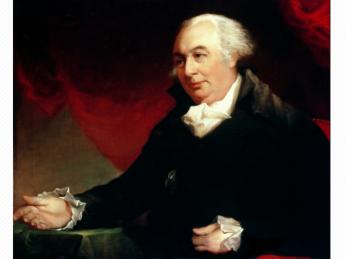
|
| Gouverneur Morris |
And finally, Gouverneur Morris, as "Lord of the Manor" the only titled aristocrat at the Convention, going back several generations before the English settlement of America. Morris was displaced by the British occupation of New York and became Robert Morris' lawyer. He was as tall as George Washington, but had both an arm and a leg badly injured in accidents; somehow, his many lady friends found it enhanced his attractiveness. Gouverneur is referred to as the "Penman of the Constitution", actually the editor.
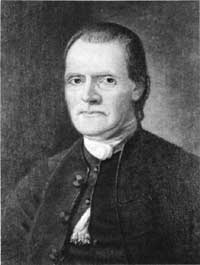
|
| Roger Sherman |

|
| Benjamin Franklin |
So there you have the authors we can identify. It would be astonishing if Benjamin Franklin could sit there for months without saying a word, and he probably didn't. That old fox was in the habit of placing his words in the mouth of someone else so he could maneuver around any opposition. And he certainly waited until the last moment of hesitation, urging his colleagues to doubt their infallibility a little, and vote for the best they could probably produce.
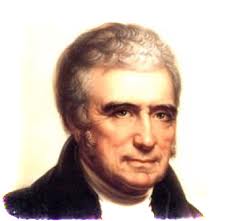
|
| John Marshall |
Penman of the Constitution
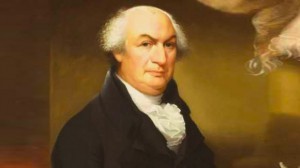
|
| Gouverneur Morris |
THE Constitution is the product of many minds, its ideas have many sources. But final phrasing of the unified document can largely be traced to a lawyer, Gouverneur Morris. The Constitutional Convention would announce a topic, argue for days about different resolutions of it, and then vote on or amend a composite resolution ( unless the matter was deferred to another day of earnest wrangling.) After months of deliberation, that jumble of resolutions made quite a pile. The Convention then turned it all over to Gouverneur Morris for smooth editing and uniformity. Although Morris had arrived a month late for the Convention, he still had time to rise and speak his views more than any other delegate, 173 times. But comparatively few of his ideas identifiably survived the voting; by Convention's end, the delegates were most likely listening for elegance and poise, increasingly expecting the final edit to be his. He finished the task in four days, and the full convention only changed a few words before accepting it. This assembly needed a lawyer who would sincerely follow the intent of his client, rather than yield to the slightest temptation to warp it with his own views. The convention had heard his opinion about almost everything, were thus alerted to uninvited slants. He gave them what they asked for, wording it for persuading the nation, as he himself had been persuaded by what the delegates wanted. The remarkable degree to which he had faithfully served his client's wishes, rather than his own, only emerged twenty years later. During the War of 1812, he disavowed the Constitution he had written.
 We the People of the United States, in Order to form a more perfect Union, establish Justice, insure domestic Tranquility, provide for the common defence, promote the general Welfare, and secure the Blessings of Liberty to ourselves and our Posterity, do ordain and establish this Constitution for the United States of America. 
|
| Preamble to the Constitution |
Morris mostly shortened what the delegates had said. A word here, a phrase there, sometimes whole sentences were removed. After that, rearrangement, and substitution of more precise verbs. This lion of the drawing room, this duelist of the salon, undoubtedly had an enjoyable time twitting his less accomplished clients with brisk capsules of what, of course, they had meant to say. To remember that he was outshining Benjamin Franklin and most of the other recognized wits of the continent, is to savor the fun of it all. Of all people in the Enlightenment, Franklin was certainly Gouverneur's equal in sparkling exchanges of debate. Here, he did not even try.
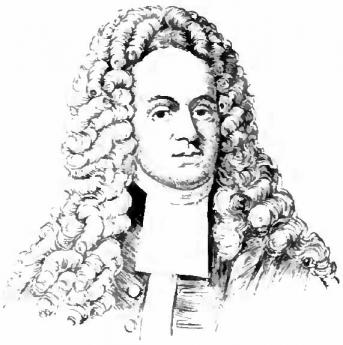
|
| John Peter Zenger |
Where did this apparition come from? He was almost but not quite a lord of the manor, referring to his extensive riverfront estate in the Bronx called Morrisania, which dated back seven generations in America and ultimately belonged to him, but the title went to his half-brother. He was unquestionably a member of that small society which settled America before the English colonization. Even George Washington was only a fourth-generation American. The Morris side of the family had included two Royal Governors of New York, including the one who tried to imprison Peter Zenger for telling the truth. Gouverneur was his mother's family name, one of the Huguenots who settled New Rochelle in 1663. Under the circumstances, it is not surprising that his mother was a loyalist, and his half-brother a Lieutenant General in the British Army. Gouverneur Morris was a brilliant student of law, unusually tall and handsome for the era. He was as tall as George Washington, and Houdon used him as a body model for a statue of the General. Among the ladies, he created a sensation wherever he went. At an early age, however, he spilled a kettle of hot water on his right arm, which killed the nerve and mummified the flesh. The pain must have been severe, with not even an aspirin to help, and the physical deformity put an end to a big man's dreams of military valor. To a young mind, the physical deformity probably seemed more disfiguring than it needed to be, in addition to diminishing his own ideas of himself. He turned to the law, where he was probably a fiercer litigant than he needed to be. And more of a rebel.
The timing of circumstances drove him out of Morrisania, then out of Manhattan, as the invading British cleared the way for the occupation of New York City. Then up the Hudson River to Kingston, and on to the scene of the Battle of Saratoga. He had been elected to the Continental Congress but stayed in the battlegrounds of New York during the early part of the Revolution, helping to run the rebel government there, and making acquaintance with George Washington, whom he soon began to worship as the ideal aristocrat in a war he could not actively join as a combatant himself. With Saratoga completely changing the military outlook for the rebellion, Morris was charged up, ready to assume his duties as a member of the Continental Congress. By that time, Congress had retreated to York, Pennsylvania, George Washington was in Valley Forge, and the hope was to regroup and drive the British from Philadelphia. For all intents and purposes Robert Morris the Philadelphia merchant, no relative of Gouverneur, was running the rebel government from his country home in Manheim, a suburb of Lancaster. After presenting himself to Robert, Gouverneur was given the assignment of visiting the camps at Valley Forge and reporting what to do about the deplorable condition of the Army and its encampment. By that time, both the British and the French had about decided that the war was going to be decided in Europe on European battlefields, so the armies and armadas in America were probably in the wrong place for decisive action. Lord North had reason to be disappointed in Burgoyne's performance at Saratoga, and Howe's abandonment of orders, even though by a close call he had captured the American Capital of Philadelphia. Consequently, Lord North added the appearance of still another defeat by withdrawing from Philadelphia, deciding in the process to dispatch the Earl of Carlisle to offer generous peace terms to the colonies. Carlisle showed up in Philadelphia and was more or less lost to sight among rich borderline loyalists of Society Hill like the Powels. His offer to allow the Americans to have their own parliament within a commonwealth nominally headed by the Monarch went nowhere. The Colonist Revolutionaries were being offered what they had asked for, in the form of taxation with representation. To have it more or less snubbed by the colonists was certainly a public relations defeat to be added to losing Philadelphia and Saratoga. In this confused and misleading set of circumstances, Gouverneur sent several official rejections of the diplomatic overture and wrote a series of contemptuous newspaper articles denouncing the idea. It seems inconceivable that Gouverneur would take this on without the approval of Washington, Robert Morris, or the Continental Congress, to all of whom he had ready access. But if anyone could do such a thing on his own responsibility, it was Morris. One hopes that future historians will apply serious effort to clarifying these otherwise unexplainable actions.
With of course the indispensable help of retrospect, some would say Gouverneur Morris had committed a massive blunder. The Revolutionary War went on for six more years, the Southern half of the colonies were devastated, and the post-war chaos came very near destroying the starving little rebellion. The alternative of accepting the peace offering might have allowed America and Canada to become the world powers they did become; but the French Revolution or at least the Napoleonic Wars might never have happened, the World Wars of the Twentieth century might have turned out entirely differently, and on and on. Historians consider hypothetical versions of history to be unseemly daydreams ("counterfactuals"), but it seems safe to suppose Gouverneur Morris changed history appreciably in 1778. Whether he did so as someone's agent, or on his own, possibly remains to be discovered in the trunks of letters of the time. Whether the deceptive atmosphere of impending Colonial victory was strong enough to justify such wrongheaded decisions, is the sort of thing which is forever debatable.
While most of the credit for the style of the Constitution must go to Gouverneur Morris, there is a record of a significant argument which Madison resisted and lost, about the document style. During the debates about the Bill of Rights, Roger Sherman of Connecticut rose to object to Madison's intention to revise the Constitution to reflect the sense of the amendments, deleting the language of the original, and inserting what purports to be the sense of the amended version. That is definitely the common practice today for organization by-laws and revisions of statutes; it is less certain whether it was common practice at the end of the 18th Century. In any event, Sherman was violently opposed to doing it that way with amendments to the Constitution. After putting up a fight, Madison eventually gave up the argument. So the 1789 document continues to exist in its original form, and the fineness of Morris' elegant language is permanently on display. It may even help the Supreme Court in its sometimes convoluted interpreting the original intent of the framers. In any event, we now substitute the unspoken process of amending the Constitution by Supreme Court decision, about a hundred times every year. By preserving the original language, the citizens have preserved their own ability to have an opinion about how it may have wandered.
REFERENCES
| Gentleman Revolutionary: Gouverneur Morris, the Rake Who Wrote the Constitution : Richard Brookhiser: ISBN-13: 978-0743256025 | Amazon |
Alexander Hamilton, Celebrity
 He had the kind of taudry private life and flashy public behavior that Philadelphia will only tolerate in aristocrats, sometimes. 
|
It comes as a surprise that most of the serious, important things Alexander Hamilton did for his country were done in Philadelphia, while he lived at 79 South 3rd Street. That surprises because much of his more colorful behavior took place elsewhere. He was born on a fly-speck Caribbean island, the "bastard brat of a Scots peddler" in John Adams' exaggerated view, was orphaned and had to support himself after age 13. The orphan then fought his way to Kings College (now Columbia University) in New York in spite of hoping to go to Princeton, and has been celebrated ever since by Columbia University as a son of New York. He did found the Bank of New York, and he did marry the daughter of a New York patroon, and he was the head of the New York political delegation. As you can see in the statuary collection at the Constitution Center, he was a funny-looking little elf with a long pointed nose, frequently calling attention to himself with hyperkinetic behavior. Even as the legitimate father of eight children, Hamilton had some overly close associations with other men's wives, probably including his wife's sister. Nevertheless, he earned the affection of the stiff and solemn General Washington, probably through a gift of gab and skill getting things done, while outwardly acting as court jester in a difficult and dangerous guerilla war. There is a famous story of his shaking loose from the headquarters staff and fighting in the line at Yorktown, where he insolently stood on the parapet before the British enemy troops, performing the manual of arms. Instead of using him for target practice, the British troops applauded his audacity. Harboring no such illusions, Aaron Burr later killed him in a duel as everyone knows; it was not his first such challenge.

|
| Alexander Hamilton |
Columbia University President Nicholas Murray Butler told other stories of celeb behavior to reinforce Hamilton's New York flavor. But in the clutch, General Washington learned he could always trust Hamilton, who wrote many of his letters for him and acted as his reliable spymaster. When the first President faced signing or not signing the fateful bill to create the National Bank, a perplexed Washington had to choose between: the violent opposition of Thomas Jefferson and James Madison, or the bewildering complexity of Alexander Hamilton's reasoning in arcane economics. On the one hand, there was the simple principle that owing money was seemingly always evil; on the other was the undeniable truth that for every debit created, you create a balancing credit somewhere. Washington ultimately chose to go with Hamilton, whose reasonings he likely didn't understand very well. If you doubt the difficulty, try reading Hamilton's Report on the Bank, written to persuade the nation and its first President of the soundness of his ideas. And then consider the violence of even present-day arguments about such "supply side" economics.
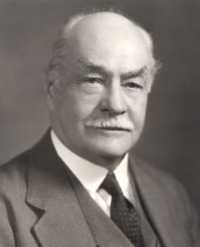
|
| Nicholas Murray Butler |
All of these momentous events happened in Philadelphia at places now easily visited in a morning's stroll. But Hamilton's image as a Philadelphian, doing great things in and for Philadelphia, was forever tarnished at one single dinner he hosted. Jefferson and Madison, his political opponents but his guests, were persuaded to provide Virginia's votes for the federal takeover of state Revolutionary War debts, in return for offering New York's votes for moving the nation's capital to the banks of the Potomac. True, Pennsylvania allowed itself to be pacified with having the capital remain here for ten years while the southern swamps were being drained. But it was Hamilton who cooked up this deal and sold it to the other vote swappers. Philadelphia felt it was entitled to the capital without needing to ask, felt that Hamilton was deliberately under-counting Pennsylvania's war debts, and this city has never appreciated the insolent idea that its entitlements were forever in the hands of wine-swilling hustlers. As the economic consequences of this backroom deal became evident during the 19th Century, it was increasingly unlikely that Philadelphia would lionize the memory of the man responsible for it. Let New York claim him, if it likes that sort of thing. When Albert Gallatin, who was more or less a Pennsylvania home town boy, attacked Hamilton as a person, as a banker, and as a Federalist -- he had a fairly easy time persuading Philadelphians that this needle-nosed philanderer was an embarrassment best forgotten.
REFERENCES
| Alexander Hamilton Ron Chernow ISBN:978-0-14-303475-9 | Amazon |
Robert Morris: Businessman Father of the Bureaucracy
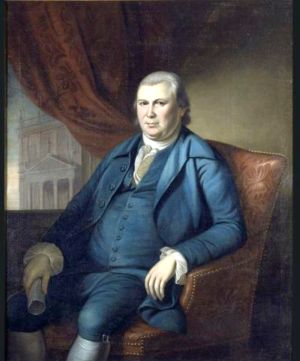
|
| Robert Morris |
UNDER the Articles of Confederation, America had a President who presided, but there was no executive branch for him to do anything administrative. The day to day business of the nation was conducted by committees of Congress, who mainly contracted out the actual work. Evidently, Robert Morris, the businessman had observed this system with displeasure, because it only took him a few days to replace it with departmental employees, reporting to him. The affairs of the nation were evidently in such disarray that there is scarcely any recorded resistance to this astonishing re-arrangement, probably viewed as only one of a series of brisk actions by this foremost businessman of the nation, acting in an emergency and to some extent using his own money. Furthermore, the immediate administrative improvement was apparently so obvious to everyone that the system continued after Morris left office, and was absorbed into the 1787 Constitution without much-recorded debate. Without dissent, as we say, the bureaucracy had been created. As the press of business steadily increased the bureaucracy, from a handful of employees to many millions of them, the fourth branch of government was created without any Constitutional mission statement, not one single word. Following directions set by early America's preeminent no-nonsense businessman, control of the bureaucracy was placed within the Executive branch, in time largely located within the District of Columbia, and governed by rules made by the Civil Service Commission. Sometimes this fourth and largest branch of government skirts dangerously close to encouraging insubordination to their politically appointed superiors.
For some reason, the State Department is particularly suspected of such "Yes, Minister" behavior. Increasingly, government subcontractors are relied upon ("privatization"), as the growth of public sector workforces a return to the subcontractor approach of two centuries earlier; such subcontractors increasingly find the bureaucracy assumes the role of the second Board of Directors. And for the same reason as before: the work of the central government keeps increasing. At a state and local level, an uncomfortable amount of political funding can be traced to utilities and other corporations who have been awarded legal monopolies, uncomfortably like the mercantilism which our colonist ancestors had found so repugnant to deal with. In the 21st Century, we are finally approaching the point where we can foresee the number of people working for some level of government becoming greater than the number of voting citizens, and therefore able to control their income and the nature of their work. When the bureaucracy begins to exert political election power over its elected superiors, elected politicians are almost certain to rebel at what they will surely see as going a step too far. However, on the topic of salary and work environment, they are likely to become allies. Public discontent is already echoed in the growing political movement to limit or shrink the size of government; it would be well to examine and pilot test alternative options before this one gets us into trouble.
In retrospect, this was one of many features of creating the three branches of government where broader implications went unnoticed in 1787. The British government had three branches, King, Parliament, and Judiciary. To create a government consisting of a President, a Congress, and a Judiciary did not then seem like much of a departure. However, the Revolution deposed the King and made the people sovereign. When the real implications of that breezy slogan had to be translated into legislative language serious implications emerged, unexpected then, and now hard to change.
Franklin Endorses the Constitution
Monday Sepr. 17, 1787. In Convention (6th and Chestnut, Philadelphia).
The Engrossed Constitution being read, Doctor. Franklin rose with a Speech in his hand, which he had reduced to writing for his own convenience, and which Mr. Wilson read in the words following:
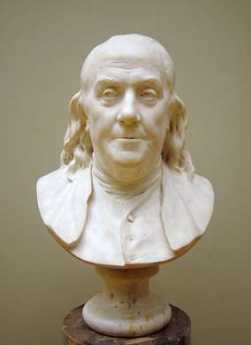
|
| Bust of Benjamin Franklin |
I confess that there are several parts of this constitution which I do not at present approve, but I am not sure I shall never approve them: For having lived long, I have experienced many instances of being obliged by better information or fuller consideration, to change opinions even on important subjects, which I once thought right, but found to be otherwise. It is therefore that the older I grow, then after I am to doubt my own judgment and to pay more respect to the judgment of others. Most men indeed as well as most sects in Religion, think themselves in possession of all truth, and that wherever others differ from them it is so far error. Steele, a Protestant in a Dedication tells the Pope, that the only difference between our Churches in their opinions of the certainty of their doctrines is, the Church of Rome is infallible and the Church of England is never in the wrong. But though many private persons think almost as highly of their own infallibility as of that of their sect, few express it so naturally as a certain French lady, who in a dispute with her sister, said, "I don't know how it happens, Sister, but I meet with nobody but myself, that's always in the right"- "Il n'y a que moi quia Toujours reason."
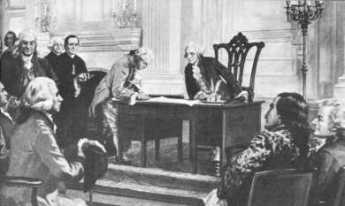
|
| The signing of the Constitution |
In these sentiments, Sir, I agree to this Constitution with all its faults, if they are such; because I think a general Government necessary for us, and there is no form of Government but what may be a blessing to the people if well administered, and believe farther that this is likely to be well administered for a course of years, and can only end in Despotism, as other forms have done before it, when the people shall become so corrupted as to need despotic Government, being incapable of any other. I doubt too whether any other Convention we can obtain may be able to make a better Constitution. For when you assemble a number of men to have the advantage of their joint wisdom, you inevitably assemble with those men, all their prejudices, their passions, their errors of opinion, their local interests, and their selfish views. From such an Assembly can a perfect production be expected? It, therefore, astonishes me, Sir, to find this system approaching so near to perfection as it does; and I think it will astonish our enemies, who are waiting with confidence to hear that our councils are confounded like those of the Builders of Babel; and that our States are on the point of separation, only to meet hereafter for the purpose of cutting one another's throats. Thus I consent, Sir, to this Constitution because I expect no better, and because I am not sure, that it is not the best. The opinions I have had of its error, I sacrifice to the public good--I have never whispered a syllable of them abroad-- Within these walls they were born, and here they shall die--If every one of us in returning to our Constituents were to report the objections he has had to it, and endeavor to gain partisans in support of them, we might prevent it is being generally received, and thereby lose all the salutary effects and great advantages resulting naturally in our favor among foreign Nations as well as among ourselves, from our real or apparent unanimity. Much of the strength and efficiency of any Government in procuring and securing happiness to the people, depends, on opinion, on the general opinion of the goodness of the Government, as well as of the wisdom and integrity of its Governors. I hope therefore that for our own sakes as a part of the people and for the sake of our posterity, we shall act heartily and unanimously in recommending this Constitution (if approved by Congress and confirmed by the Conventions) wherever our influence may extend, and turn our future thoughts and endeavors to the means of having it well administered.
On the whole, Sir, I cannot help expressing a wish that every member of the Convention who may still have objections to it, would with me, on this occasion doubt a little of his own infallibility--and to make manifest our unanimity, put his name to this instrument.
He then moved that the Constitution be signed.
When the last members were signing it, Doctor Franklin looking towards the President's Chair, at the back of which a rising sun happened to be painted, observed to a few members near him, that Painters had found it difficult to distinguish in their art a rising from a setting sun. I have, said he, often and often in the course of the Session, and the vicissitudes of my hopes and fears as to its issues, looked at that behind the President without being able to tell whether it was rising or setting: But now at length I have the happiness to know that it is a rising and not a setting Sun.
Signers and Non-Signers of the Constitution
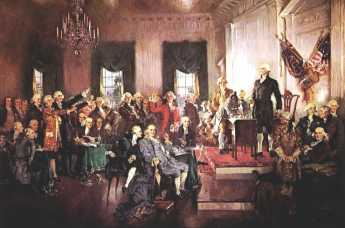
|
| Signers of The Constitution |
John Dickinson was active in designing both the Declaration of Independence and the Constitution, but he signed neither one. His position on the Declaration was that England had behaved in an offensive way; but the situation was getting better and it was still possible to patch things up, even with a British fleet in New York harbor displaying hostile intent. His later position on the Constitution is less clear. Dickinson asked George Read to sign his name because he was sick. Whether this was a real illness or a diplomatic illness is not readily known.
Three active delegates made no bones about their opposition to the final product: Edmond Randolph and George Mason of Virginia were not mollified by private assurances that a Bill of Rights was necessary but could be added later. They refused to sign a constitution that did not currently include this most passionate of their demands. There is little doubt of their sincerity, but any politician today would recognize they also needed to protect their flank from Patrick Henry who stayed at home denouncing the whole enterprise. Henry was a powerful speaker, representing the Scotch-Irish Virginia Piedmont area. In Scotland, Ireland, and America, that group had been abused by English kings three times and wanted iron-clad protection against backsliding to English rule or English government models. It's quite possible that Virginia's George Wythe and James McClurg left the convention early in order to avoid the local political consequences of signing the document, or the equally uncomfortable stance of opposing George Washington. The sentiments of Virginia can be surmised when of the seven delegates sent by Virginia, only John Blair joined the two instigators, George Washington and James Madison in announcing their approval. A majority of the Virginia delegation was thus held back on ratification until only one last vote was needed for enactment. Without George Washington, there can be little doubt the whole effort would have failed. Indeed, a case could be made that the location of the District of Columbia and the election of Virginians as four of the first five presidents also has the appearance of trying to persuade the six hundred pound Virginia gorilla to play nice.
Elbridge Gerry of Massachusetts similarly refused to sign any constitution which did not include a Bill of Rights. However, Gerry undermined his stance on principle by inventing the technique of packing his opposition into one voting district (by shifting its borders) so his own party could win narrow majorities in several other districts. This sleazy manipulation of loopholes in the system has become known as Gerrymandering and raises a question perhaps unfairly, of where Gerry actually stood on every other issue in the Constitutional Convention. By contrast, it is impossible to imagine George Washington doing such a thing, and quite possible to imagine he would never again speak to someone who did.
In addition to the three delegates who stayed to the end but refused to sign, an additional four left early to demonstrate their protest: John Lansing and Robert Yates of New York; and Luther Martin and John Mercer of Maryland.
We are left less clear about the opinions of seven more who simply left the convention early (Oliver Ellsworth of Connecticut, William Houston and William Pierce of Georgia, Caleb Strong of Massachusetts, William Houston of New Jersey, and William Davie and Alexander Martin of North Carolina.) The same uncertainty extends to the eighteen delegates who were invited to attend but either refused or regretted their inability to attend: (Erastus Wolcott of Connecticut, Nathaniel Pendleton and George Walton of Georgia, Charles Carroll, Gabriel Duvall, Robert Hanson Harrison, Thomas Sim Lee, and Thomas Stone of Maryland, Francis Dana of Massachusetts, John Pickering and Benjamin West of New Hampshire, Abraham Clark and John Neilson of New Jersey, Richard Caswell and Willie Jones of North Carolina, Henry Laurens of South Carolina, and Patrick Henry, Richard Henry Lee, and Thomas Nelson of Virginia). These men were originally selected because of their local eminence, so some of them may have been unable to spend several months in a City that took days to reach on horseback. On the other hand, we certainly know where Patrick Henry stood, and a large number of other abstentions from certain states suggests more than personal inconvenience was involved. After all, Rhode Island refused even to nominate anyone to the Delegation. In this last case, a political issue was highlighted. The Articles of Confederation which were being replaced not only required unanimous consent to change them, but they affirmed the Articles to be permanent. Under ordinary contract law, that would be dispositive. But George Washington was hell-bent on replacing the Articles of Confederation, so what they said would then no longer matter.
There remains a need for someone, perhaps in a doctoral thesis, to examine the voluminous correspondence and recollections of the large group of non-signers to assess the true nature of their failure to attend or sign. There was plenty of room for honest disagreement, personal business back at home, illness, or feelings of inadequacy. On the other hand, plenty of other subsequent politicians have exhibited an unwillingness to offend anyone, a hope to seek advantage from both sides, or a habitual tendency of waiting to see who would win before stating an opinion. Politics would be better without such personal inadequacies, but politics would not be politics without them. In fairness to their quandaries, the voting on the Constitution was by states, requiring nine to adopt it. If the vote of their state was a foregone conclusion, some delegates probably had a right to go home and let it happen in their absence. In the case of Alexander Hamilton, here stood the sole New York delegate in attendance at the final signing. Since he had been agitating for this sort of reform for seven years before Madison and Washington convinced each other, it seems possible that others withdrew to let him have the limelight. There is little doubt the single remaining responsibility of the signers was to go home and "deliver" their state for ratification, and Hamilton went at that with a vengeance. Although the moment of final signing appears on portraits and in sculpture, it was only the beginning of the battle for adoption, not the final victory. Indeed the Constitution as we now perceive it did not take more or less final form until the early government shaped its operation in actual practice. Most of that shaping process also took place in Philadelphia, during the first ten years while the seat of government was still located there. In particular, many if not most of the elected members of the First Congress had been members of the Constitutional Convention, returning to Philadelphia to finish the job by writing the Bill of Rights.
|
|
|
| |||||
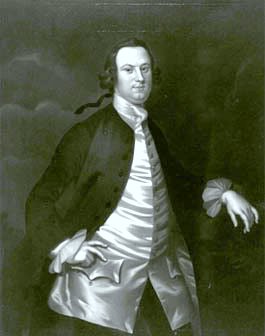
|
||||||||
| Daniel Carroll |
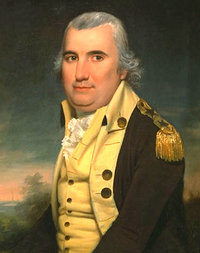
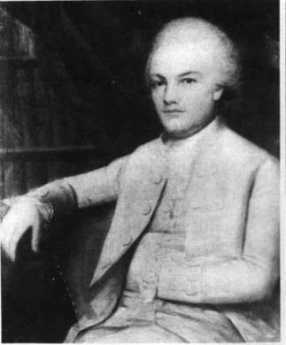
|
| Charles Pinckney |
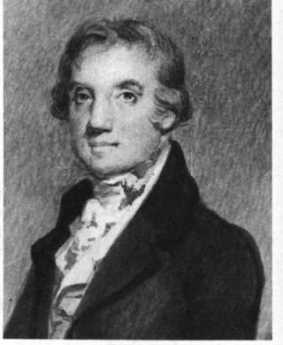
|
| Abraham Baldwin |
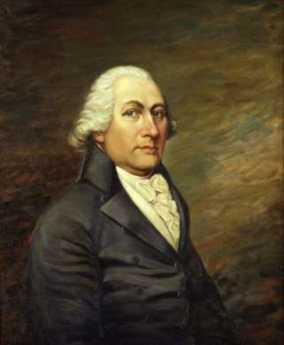
|
| John Langdon |
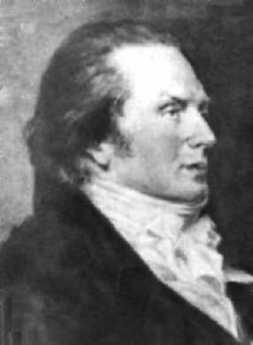
|
| Nicholas Gilman |
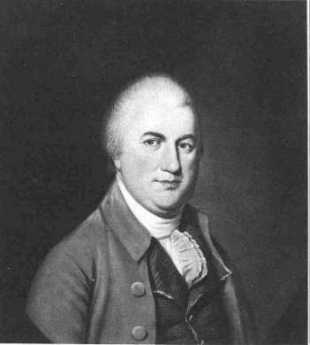
|
| Nathaniel Gorham |
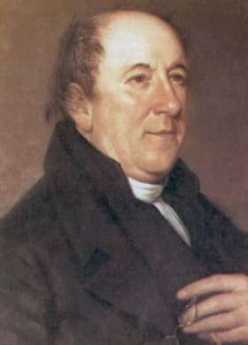
|
| Rufus King |
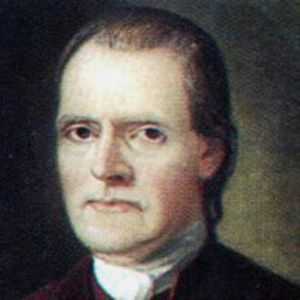
|
| Rodger Sherman |

|
| Alexander Hamilton |
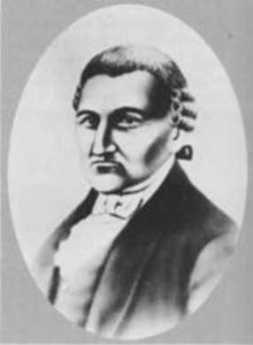
|
| David Brearly |
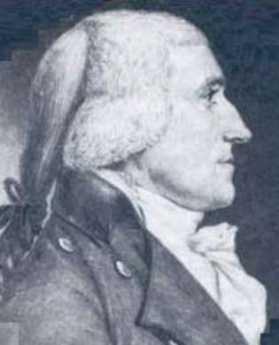
|
| Jonathan Dayton |
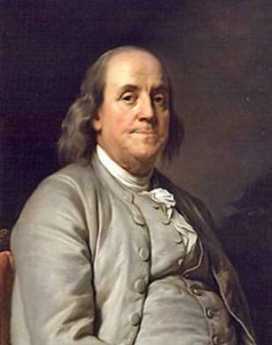
|
| Benjamin Franklin |
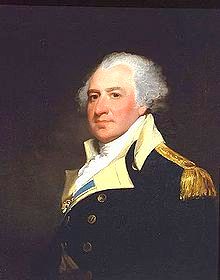
|
| Thomas Mifflin |
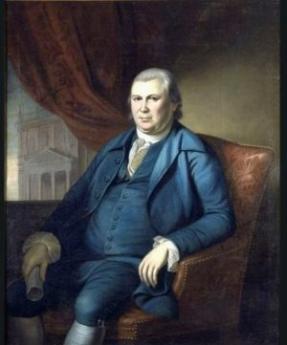
|
| Robert Morris |
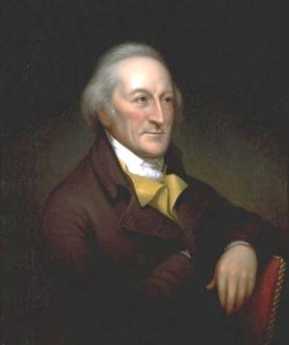
|
| George Clymer |
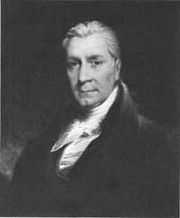
|
| Thomas Fitzsimons |
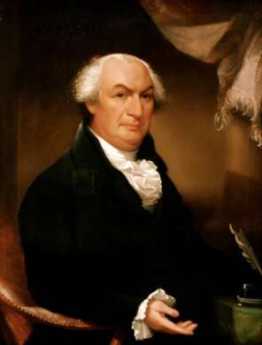
|
| Governor Morris |
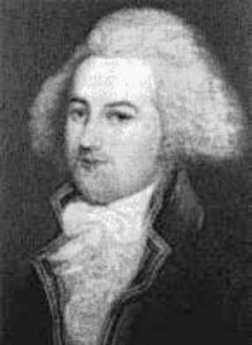
|
| William Houston |
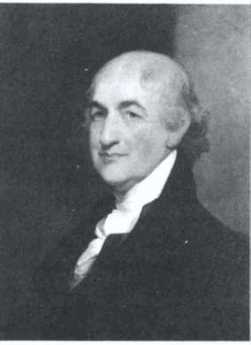
|
| Caleb Strong |
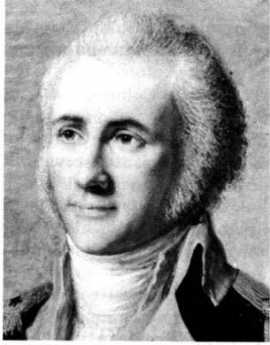
|
| William Davie |
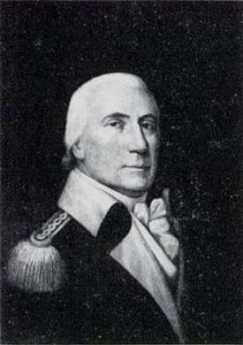
|
| Alexander Martin |
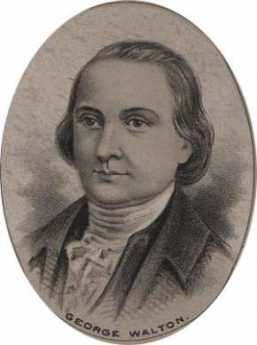
|
| George Walton |
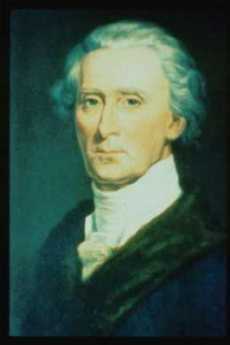
|
| Charles Carroll |
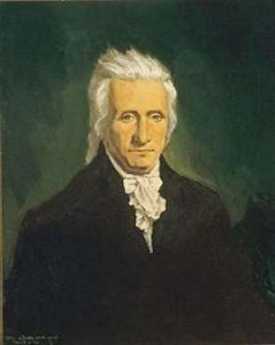
|
| Gabriel Duvall |
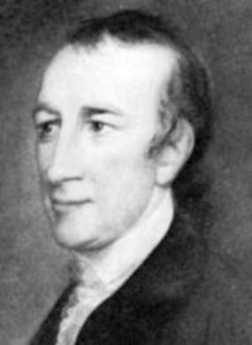
|
| Thomas Stone |
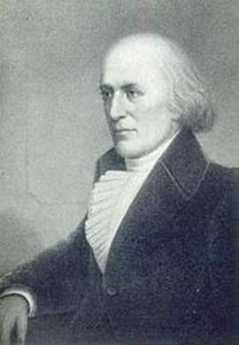
|
| Francis Dana |
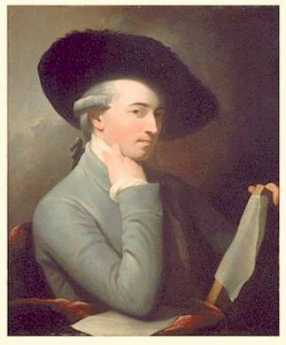
|
| Benjamin West |
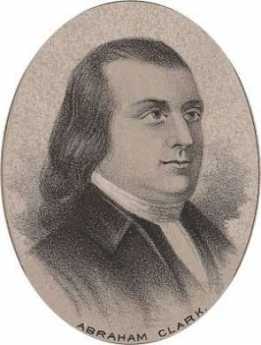
|
| Abraham Clark |
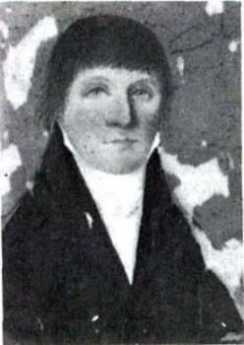
|
| Richard Caswell |
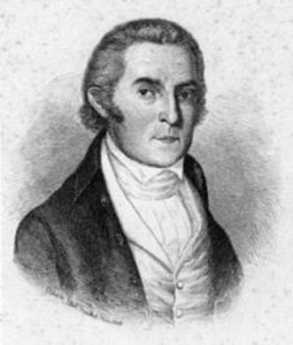
|
| Willie Jones |
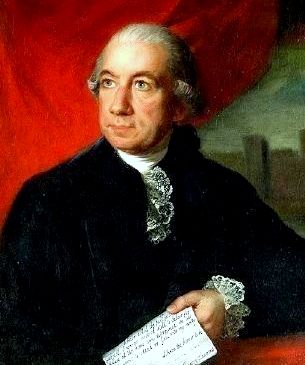
|
| Henry Laurens |
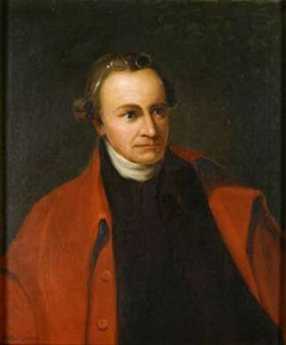
|
| Patrick Henry |
.jpg)
|
| Thomas Nelson |
James Madison
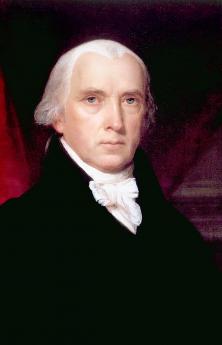
|
| James Madison |
JAMES Madison was born (1751) a rich Virginia planter, was a major factor in the composition of the U.S. Constitution, became secretary of State and President of the United States for two terms (1812-20), and died (1836) impoverished at the age of 85. Because the Constitutional Convention was conducted in secrecy, we cannot be entirely certain which parts to attribute to him, or even what his personal position had been on many issues. He was Chairman of the Committee of the First Congress and the dominant figure writing the Bill of Rights, which he had declared were unnecessary. These early Amendments to the Constitution were therefore sparsely confined to those rights which met universal approval and excluded the many proposals of rights which were controversial. The surprising outcome is that the Bill of Rights survives as a bedrock summary of the nation's belief system. There is a tendency to review the actions of all Presidents after they leave office, searching for remarks or behavior which clarifies their official actions while President, and in Madison's case his positions on the dominant Constitutional issues of our Republic. However, that later period of his life was marked by many abrupt reversals of inexplicably contradictory positions that often lessen his stature, and embarrass his earlier achievements. Gouverneur Morris, for example, had the lowest possible opinion of Madison, summarizing him as merely a drunkard. Morris was so contemptuous of Madison that during the War of 1812 that aristocratic main editor of the Constitutional document denounced the whole effort in disgust, mainly devoting his own efforts to making money from the Erie Canal, and later going to France in the Bonaparte era. Other close observers refrained from comment about Madison's drinking habits, and we must presently remain uncertain whether the comment explains Madison's erratic behavior, or whether it was merely an emotional exaggeration by Morris who spent most of his own later life, acting entertainingly at social gatherings.
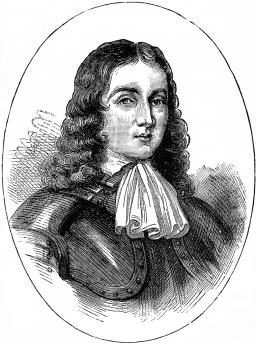
|
| William Penn |
On the one hand, and on the other; there is scarcely an episode in Madison's life which could not begin with the same words. Madison had tuberculosis and was sent North to go to college at Princeton, where he was much taken with Quaker beliefs in a state still controlled by William Penn's proprietors, but in a College whose campus thoughts were dominated by refugees from the Scottish Enlightenment. He was a good student and stayed an extra year to study Greek under the famous John Witherspoon. He was soon involved in politics, catching the eye of General Washington with his active promotion of the cause of the unpaid Revolutionary Army. Washington soon enlisted the efforts of this neighboring Virginia planter in organizing a new Constitutional Convention, primarily intended to strengthen central government against the intransigent state legislatures, with a particular effort to enable the central government to levy taxes to service war debts. Neither Washington nor Madison knew much about finance; the ideas about leveraging sovereign debt through a central bank evidently came from Robert Morris, who was a close friend of Washington's and in many ways the acting President of the United States during the Revolution. The young Alexander Hamilton bore the same sort of relationship to Morris as the young Madison bore to the General who was a generation older; in both cases, they supplied their own ideas, but mainly applied time, youth and energy to the concepts of their seniors. Hamilton and Madison became fast friends in a great cause, notably collaborating in the writing of the Federalist Papers to promote the new Constitution. Madison was the great scholar of the Roman Republic, a Washington favorite, and displayed a remarkable innate talent for politics in the finest sense, explaining complicated logic and persuading the unpersuaded. Washington nursed a passionate hatred for partisan politics and collaborated with the daily assistance of Madison in defining the traditions of the American presidency. Washington wanted to avoid the appearance of being a King, which was another Washington hatred but was badly in need of some models for an entirely new concept, the executive branch of a deliberately divided government. In one famous episode, Madison wrote Washington's speech, then wrote the reply to Washington by Congress, then wrote Washington's thank-you note back to Congress. Madison was devoted to his work; he only married Dolley Madison when he was 37 years old. Madison would seem to qualify for the category now called nerd.
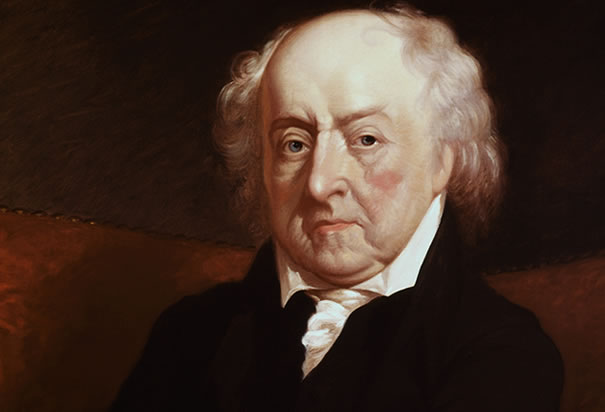
|
| John Adams |
Hamilton, on the other hand, had many children, legitimate and otherwise, many girlfriends, at least two duels, and flamboyant behavior on the parapets of Yorktown during the final battle. Unlike the aristocratic Madison, he was described by John Adams as the "bastard brat of a Scottish peddler". Although both men seemed to be driven by their short stature, Hamilton never let it get the better of him. Even Martha Washington was amused by his rambunctious behavior, naming her tomcat after him. Both men seemed unduly influenced by their new friends, Hamilton by his rich New York wife's rich friends, and Madison by Thomas Jefferson and Patrick Henry, the big men on campus so to speak, of the Virginia scene. When Hamilton began to favor banks, bankers and obscure financial wizardry -- and particularly after Madison's hero George Washington took Hamilton's side in the establishment of a central bank-- Madison was ready to be courted by his childhood heroes in Tidewater Virginia, particularly Thomas Jefferson, who always wrote prose as if writing poetry. That's about all we really know about the episode, and there is probably more we don't know, but Madison in an instant became Hamilton's mortal enemy, Jefferson's fast friend, an enemy of the bank, and -- the founder of America's first political party. George Washington never spoke to him, again. It seems possible to suspect that Jefferson was jealous of Washington, although he always was very careful not to confront him directly. When Hamilton persuaded Congress to enact a whiskey tax, Albert Gallatin and other friends of Jefferson's party stirred up the Whiskey Rebellion in Western Pennsylvania, and Washington personally led fifteen hundred Federal troops across the mountains to put down the rebellion. General Alexander Hamilton was at his side. James Madison was somewhere else, probably reading a book. Madison was the sort of person who always knew when his enemies had the votes. He was often lost without the assistance of Gallatin, who somehow knew when the enemy had the better argument.
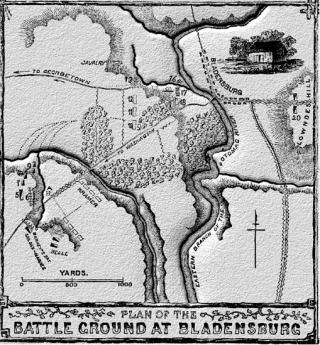
|
| Bladensburg races |
Eventually, America split between those who sympathized with the French and their land domination of Europe and those who began to seek a repair of the trade relationship with Brittania which ruled the waves. The Adams presidency was ruined by fallout from this international warfare, an embargo was imposed, and both France and England did their bit to make things worse. At one point, it was uncertain whether America would be going to war with France or with England. Eventually, it was with England in the War of 1812. Jefferson and Madison had become successive presidents dedicated to saving money by disarmament, but in spite of our having no navy and nothing but militia for an army, we blithely set about to conquer Canada, with the plan of trading it for trade concessions from the British Empire. Unfortunately, the War was a several-year series of overwhelming defeats for the Madison administration, culminating in the burning of Washington D.C. and the "Bladensburg races" (for the exits), but celebrated as Dolley Madison rescuing the portrait of George Washington, and Francis Scott Key writing the "Star Spangled Banner" about the bombardment of Baltimore. Indian massacres in Michigan and other western defeats complimented the litany of disaster, which was finally ended when Gallatin negotiated the Treaty of Ghent as status quo pro antebellum with the preoccupied British, and then celebrated Andrew Jackson's defeat of the British army at New Orleans, after the Treaty had been signed but before news of it reached home. As Madison's last acts at the end of his term, he promoted Adam Smith economics, the reconstitution of the Bank, a general rearmament campaign -- and then vetoed the bill when it passed. To say that Henry Clay in Congress was embarrassed is to stretch the limits of language. After he left office, Madison became a senior statesman, making all sorts of pronouncements about current events and the true meaning of some Constitutional point involved, quite regularly reversing his positions and encouraging secession by talking about it so much.
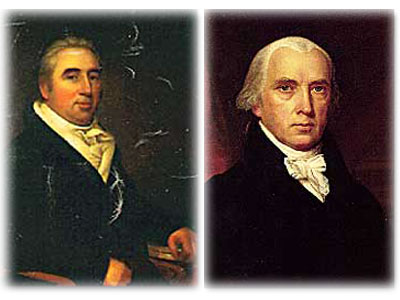
|
| Marbury v. Madison |
This sorry tale is too long to present fairly and accurately, while its point can be most simply made by reference to Madison's first involvement as Secretary of State, in the famous Supreme Court case of Marbury v. Madison . When the departing Adams administration made some last-minute inconsequential appointments, one of them was to Marbury. At the beginning of the Jefferson Presidency, John Marshall was the departing Secretary of State, James Madison the incoming one. The appointment to Marbury was duly made and ratified, its certificate lying on the desk of the Secretary of State. Marshall (outgoing) neglected to send the certificate to Marbury, and Madison (incoming) refused to do so, on the advice of Jefferson the President; none of them ends up looking, adult. Instead of recusing himself, Marshall as Chief Justice further entangled himself in a dispute where he was the referee, by devising the concept that the Supreme Court could declare acts of Congress unconstitutional, and trapping Jefferson into a position where he had to agree with it. All in all, it certainly would seem simpler for Madison to have sent over the certificate. The authors of the three most famous documents in the American icon were inaugurating what a recent biographer Kevin R.C. Gutzman, described as the Presidencies of Chicanery.
James Madison deserves the highest praise for his achievements in three documents: the Virginia Plan, which was the forerunner of the Articles portion of the Constitution, that is to say, the basic structural components of our present government. Secondly, the bulk of the Federalist Papers leading to the Ratification of the Constitution. And third, the Bill of Rights, which he saw no need for, and therefore personally rewrote to be miraculously sparing of language, limited to bedrock essentials, and celestial as a statement of American national purpose.
Madison lived a long life, but it is difficult to find anything in the last forty years which justifies his early promise. Or which could be called a disgrace to it, either, if he had only made a more ordinary beginning.
REFERENCES
| James Madison and the Making of America: Kevin R. C. Gutzman: ISBN-13: 978-0312625009 | Amazon |
Ben's Little Legacy
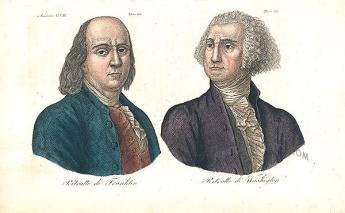
|
| Benjamin Franklin and George Washington |
ONE of the many compromises of the Constitutional Convention was to allow equal-sized blocs of people to choose their Representatives, but the State Legislatures of any size to appoint two Senators, in a bicameral Congress requiring affirmative votes from both bodies, for action. This was the first step in a separation of powers. After separation came apportionment: every state still got two Senators, but varying numbers of Representative districts would reflect population changes. The effect of this second step was to confer greater Senate power to small states because otherwise, a few states with large populations would probably always dominate the voting. (Shorthand for Constitutional scholars: favoring the House of Representatives means favoring big states.) When Franklin proposed a bargain to give the South time to solve its slavery problem, he needed to maintain balance. The small states were truculent about losing Senate power, so he had to give something else to the big states. The three big states of Massachusetts, Pennsylvania, and Virginia were very mindful that England had primarily targeted Boston, Philadelphia, and Yorktown for attack during the Revolution. Big states are paradoxically more anxious to unify with allies, to gain military strength, because enemy commanders seem to favor them as military objectives. Franklin's proposal was to allow the big states to control tax legislation, through the device of mandating that tax laws must originate in the House of Representatives. He may have known that eight states already had similar laws, but may not have realized such laws were regularly flouted. It's hard to be sure what Franklin knew because although he had once been Speaker of the Pennsylvania House, it was during a time it was a unicameral Legislature.
 ARTICLE 1, Section 7. All bills for raising revenue shall originate in the House of Representatives, but the Senate may propose or concur with amendments as on other Bills. 
|
| Washington's Gift to Franklin |
Experienced politicians in the Convention snorted with disgust. There were a dozen ways to get around such a provision, and nowadays the traditional one is for the Senate to attach a tax amendment to some bill which had originated in the House. Any House bill will suffice, and thus we have Senate-originated Medicare Amendments attached to House-originated bills whose first page purports to be legislation about highway construction. Medicare, don't you see, is an amendment to Social Security, which itself began as tax legislation. Any politician of standing could see his way through that. And even in 1787, the delegates could immediately think of ways to circumvent this little trick. When Chairman Rutledge of South Carolina returned his report from the Committee on Detail, it included Franklin's gift to the big states. His fellow delegate from South Carolina Charles Pinckney immediately proposed a friendly motion to delete the rule. Edmund Randolph of Virginia however, felt the big states "should at least get what they had been promised", thereby upsetting others who felt Randolph was being indelicate. So George Washington stepped out of the shadows and supported Randolph, his long-term neighbor, and friend in the Virginia caucus. The matter was then referred to the Committee on Postponed Parts. After a decent interval, it was reported out of the second committee and adopted. After all, with Washington and Franklin as supporters, it would be embarrassing not to pass an inconsequential motion.
8 Blogs
Personalities Who Wrote the Constitution
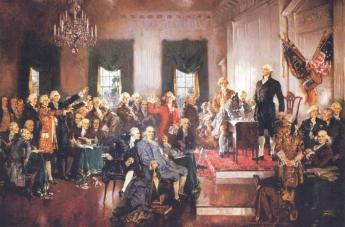 Seventy-four men were invited to the 1787 Constitutional Convention in Philadelphia; fifty attended. Fewer than a dozen were known to make a significant contribution, although it is hard to believe Benjamin Franklin and John Adams were as silent as the records seem to depict them.
Seventy-four men were invited to the 1787 Constitutional Convention in Philadelphia; fifty attended. Fewer than a dozen were known to make a significant contribution, although it is hard to believe Benjamin Franklin and John Adams were as silent as the records seem to depict them.
Penman of the Constitution
 The courts have spent a fair amount of time arguing about the meaning of phrases, words and even punctuation in the Constitution. That's what constitutional lawyers think they are paid to do. It seems possible the document survived for centuries, only because its final wording was left to a lawyer who took words seriously, using as few as possible.
The courts have spent a fair amount of time arguing about the meaning of phrases, words and even punctuation in the Constitution. That's what constitutional lawyers think they are paid to do. It seems possible the document survived for centuries, only because its final wording was left to a lawyer who took words seriously, using as few as possible.
Alexander Hamilton, Celebrity
 He had the kind of taudry private life and flashy public behavior that Philadelphia will only tolerate in aristocrats, sometimes.
He had the kind of taudry private life and flashy public behavior that Philadelphia will only tolerate in aristocrats, sometimes.
Robert Morris: Businessman Father of the Bureaucracy
 Only a few days after being appointed Financier, or acting President of the United States before the Constitution, Robert Morris swept away Congressional committees and replaced them with administrative employees.
Only a few days after being appointed Financier, or acting President of the United States before the Constitution, Robert Morris swept away Congressional committees and replaced them with administrative employees.
Franklin Endorses the Constitution
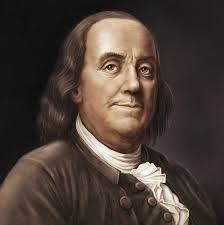 e3Benjamin Franklin never revealed his contributions to the formation of the U.S. Constitution, whether victories or defeats. When the final vote had been taken, he urged unanimous support by the delegates, in the following words.
e3Benjamin Franklin never revealed his contributions to the formation of the U.S. Constitution, whether victories or defeats. When the final vote had been taken, he urged unanimous support by the delegates, in the following words.
Signers and Non-Signers of the Constitution
 Seventy delegates were invited to attend the Constitutional Convention, fifty-five attended the sessions, but only thirty-nine signed it. Considering that Rhode Island refused to send delegates, that sounds like a closer vote than it really was. But it was definitely not unanimous.
Seventy delegates were invited to attend the Constitutional Convention, fifty-five attended the sessions, but only thirty-nine signed it. Considering that Rhode Island refused to send delegates, that sounds like a closer vote than it really was. But it was definitely not unanimous.
James Madison
 New blog 2012-07-03 15:44:59 description
New blog 2012-07-03 15:44:59 description
Ben's Little Legacy
 The Constitution provides that revenue bills must originate in the House of Representatives. This provision is regularly circumvented, and Congressmen have long forgotten they should tip their caps to Ben Franklin.
The Constitution provides that revenue bills must originate in the House of Representatives. This provision is regularly circumvented, and Congressmen have long forgotten they should tip their caps to Ben Franklin.
